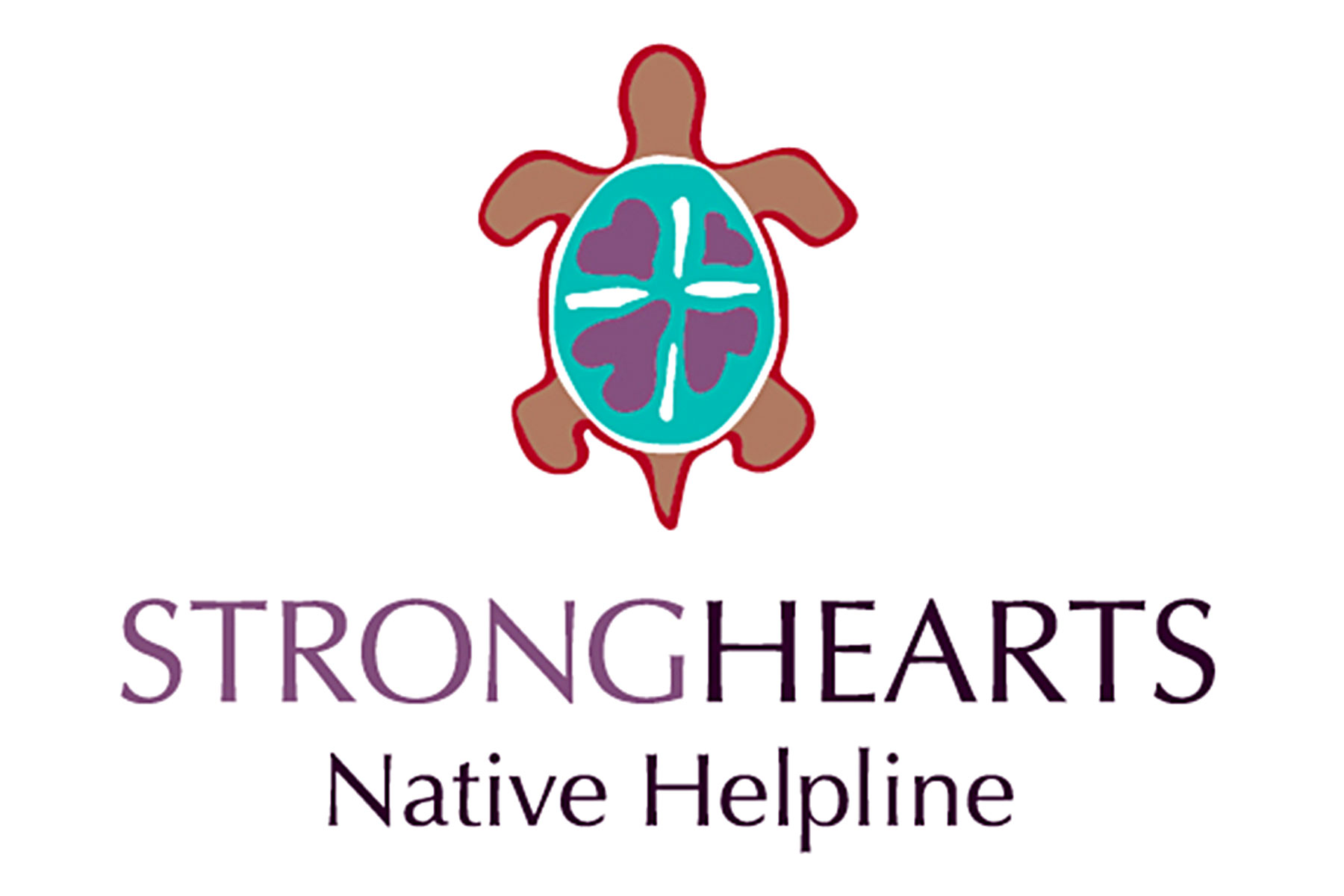This June, the National Indigenous Women’s Resource Center (NIWRC), StrongHearts Native Helpline (StrongHearts) and the Alaska Native Women’s Resource Center (AKNWRC) acknowledge, support and lift the voices of Native Two-Spirit, non-binary, lesbian, gay, bisexual, transgender, queer and/or questioning survivors of violence for Pride Month. As Indigenous nonprofit organizations, we strongly support the need to facilitate inclusive conversations about the identities intersecting across the Indigenous and 2S+/LGBTQ+ spectrum.
When NIWRC, StrongHearts, and ANWRC raise awareness on gender-based violence issues, we also recognize that our 2S+/LGBTQ+ relatives experience domestic violence and sexual violence at exceptionally high rates. Violence and abuse can happen to anyone. Across Indigenous cultures and communities, our traditional teachings uphold respect for all identities and celebrate diversity. As relatives, we must stand firmly against dangerous attitudes toward our 2S+/LGBTQ+ relatives and instead, use our Indigenous values and sacred teachings of love, respect and compassion to advocate for them. We see you. We support you. We honor your spirit.
For generations, Western culture has disparaged Indigenous religions and teachings about gender and sexuality, including the pre-existing traditional understanding that Two-Spirit individuals, embodying male and female spirits, are blessed by Creator. Colonialism and Western patriarchy threaten our relatives on the 2S+/LGBTQ+ spectrum with policy, violence and oppression across the United States. Within the 2S+/LGBTQ+ community, intimate partner violence occurs at a rate equal to or higher than that of the cis-heterosexual community. American Indians, Alaska Natives, and Native Hawaiians in 2S+/LGBTQ+ communities face systemic discrimination, violence, and harassment at disproportional rates. According to the 2015 U.S. Transgender Survey (USTS), of all the respondents who experienced sexual assault, 65% were American Indian/Alaskan Natives. Also, 73% of Native respondents experienced intimate partner violence, including physical violence, compared to 54% of the overall USTS respondents. 2S+/LGBTQ+ relatives also experience other forms of domestic violence and additional barriers to seeking help due to fear of discrimination or bias.
These statistics do not include the intergenerational and individual trauma our Indigenous relatives experience. There is a need for intergenerational efforts to recognize, reclaim and dismantle oppressive and systemic injustices toward 2S+/LGBTQ+ survivors.
Although there are incredible resources available for LGBTQ+ survivors, there is an urgent need for more culturally tailored, inclusive programs and resources that offer support services for Indigenous 2S+/LGBTQ+ survivors. As family members and communities, we must collectively advocate for more inviting, safe, accessible, and inclusive spaces for our 2S+/LGBTQ+ relatives. All members of our families, communities, and nations should feel safe, protected, and supported to live free of violence and discrimination.
Tips for Family and Friends
- Show up: Family members and friends of 2S+/LGBTQ+ relatives can create safe spaces simply by showing up, listening, and acknowledging their relative’s experiences. Keeping “open minds and hearts” can positively impact Indigenous 2S+/LGBTQ+ survivors.
- Believe survivors: Validate the feelings of 2S+/LGBTQ+ relatives, assuring them that the violence they experienced is not their fault and they are not alone. Offering support when a loved one is hurting, even in seemingly small ways, encourages connection and protects against isolation.
- Celebrate sacred teachings: Learning more about Indigenous 2S+/LGBTQ+ communities–including their history of trauma and teachings about love, compassion, courage, and support–can help reverse the shame tied to Western norms about gender and sexual orientation. Return to traditional teachings that honor all identities and sexualities.

